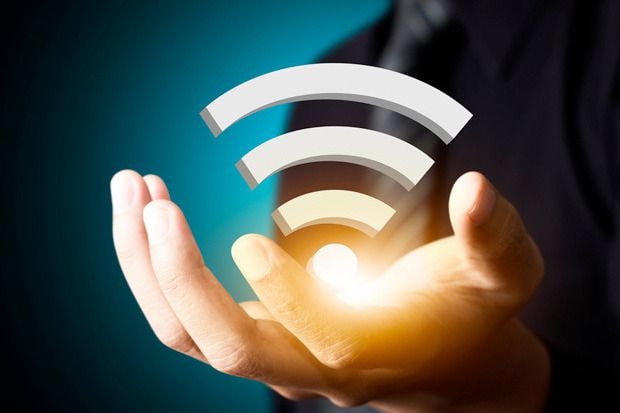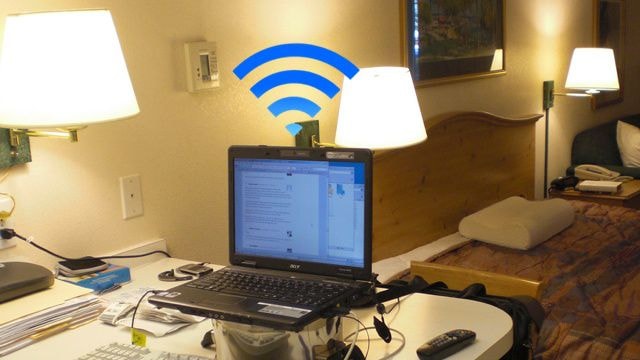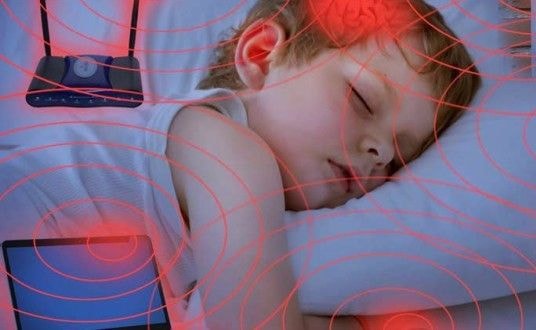Turn off wifi before going to bed if you don't want to harm your children
It is recommended that children should not sit within 1 meter of a wifi transmitter, and that wifi devices should be turned off before going to bed. Scientists warn that wifi waves are harmful to human health, especially young children.
 |
| Wifi waves are harmful to health. |
Experiments prove that wifi is harmful
Scientists warn: you should turn off Wi-Fi when going to bed and sit at least one meter away from WiFi devices, and should put your laptop on a table instead of on your lap.
Even when going to bed, many people still turn on the phone next to the pillow, it seems that we cannot separate from the Internet at all times. But do you know? Wi-Fi has become an invisible killer that threatens our health and life!
According to the Daily Mail, five Danish high school girls suspected that their wireless Internet-enabled phones might be causing poor sleep quality, so they used plant growth to study the effects of Wi-Fi.
They did an experiment, placing watercress and beans of one of six blood-healthy nutrients inside two different rooms, one with Wi-Fi turned on all day, the other without a Wi-Fi signal.
 |
| Plants die in just two weeks, the culprit is Wi-Fi (Photo) |
After 12 days of observation, a huge difference was found in the growth of the seeds in the two rooms. In the room without Wi-Fi signal, the beans germinated and grew vigorously, but in the room with Wi-Fi signal, the watercress and beans not only did not grow, but actually died.
This study shows that Wi-Fi radiation can kill plants in just two weeks, so it also reminds us that when we go to bed, it is best to turn off the Wi-Fi feature on our computers or phones, to let the devices rest, and at the same time help maintain our own health.
According to the article, you should sit at least a meter away from the WiFi device, and you should place your laptop on a table instead of on your lap.
Currently, there is no consensus in the scientific community about the impact of WiFi waves on health. Some studies say yes, some say no.
A recent article in MIT Review argues that calculating wave intensity per cubic meter is not enough, but also considers the resonance effect when waves act on the same object (similar to the converging lens effect).
Wifi can be harmful to children
Professor Lawrie Challis, Head of the UK Mobile Phone Safety Research Board, has warned parents not to let children use laptops on their laps to access the internet due to the potential health risks that radiation from wifi can pose.
Professor Challis explained that while waiting for further research on the subject, parents need to monitor and advise children to keep a distance from the antennas in laptops using wifi technology.
According to him, laptops are different from desktop computers, the type of device where the radio source can be about 20 cm from the user's feet and the radiation exposure area is only about 1% of that of a mobile phone.
 |
| wifi Absolutely do not let children put laptops on their laps. |
If a laptop is placed on the lap while using wifi, the user's body can be only 2 cm away from the transmitter and the exposure area will be equivalent to the amount of radiation emitted by a mobile phone.
Professor Challis said the health risks of using wifi laptops were greater for children because they were more sensitive than adults to certain harmful radiations, such as ultraviolet rays, which, in addition to heating body tissues, can also affect the brain and nervous system.
Wifi, mobile waves increase the risk of childhood cancer
According to the warning of Dr. Devra Davis, an environmental health researcher and head of the US-based Environmental Health Trust, children and pregnant women should not be exposed too much to cell phones and tablets that use wifi because they are sources of radiation that can cause cancer.
Devra asserts that researchers have conclusive evidence that cell phone radiation alters DNA and brain metabolism. Wifi waves reduce children's learning ability. And in adult men, wifi waves also reduce sperm count.
 |
| Children are more sensitive to radiation than adults. |
In fact, mobile phones are constantly searching for signals to send and receive information. When using this device, the body absorbs about half of the radiation emitted. For children, the amount of radiation absorbed is much greater than that of adults because their brains are still in the process of completion and contain more fluid.
This is an alarming warning because nowadays, pregnant women are clearly aware that using tobacco and alcohol will affect the health of the fetus, but ignore the risks from wifi radiation. Many people still carelessly put their phones in their front breast pockets and laptops with wifi connection on their bellies.
According to Devra, parents should not let their children use mobile phones because of the high risk of brain cancer caused by these electronic devices. Even if they have been using them for less than 10 years, the risk of getting the disease in these children is 4-5 times higher than children who do not use them. The fact that children often live in an environment with wifi coverage is also a factor that is harmful to their health.
To reduce the risk of serious illness, users should choose headphones or turn on the speaker when communicating by mobile phone. This contributes significantly to reducing the intensity of radiation affecting the body.
When not in use, parents should turn off the wifi source so that it does not affect their children. In particular, pregnant mothers should avoid placing mobile phones, laptops or tablets that emit radiation on their thighs or abdomen.
When sleeping, users should not place the phone near their head. The phone should be turned off at night or kept at least 1.8m away from the head.
In addition, scientists also recommend that using phones in enclosed areas such as cars, elevators, airplanes, trains, or in metal environments will increase the level of electromagnetic radiation stimulation.
According to Gia dinh.net






